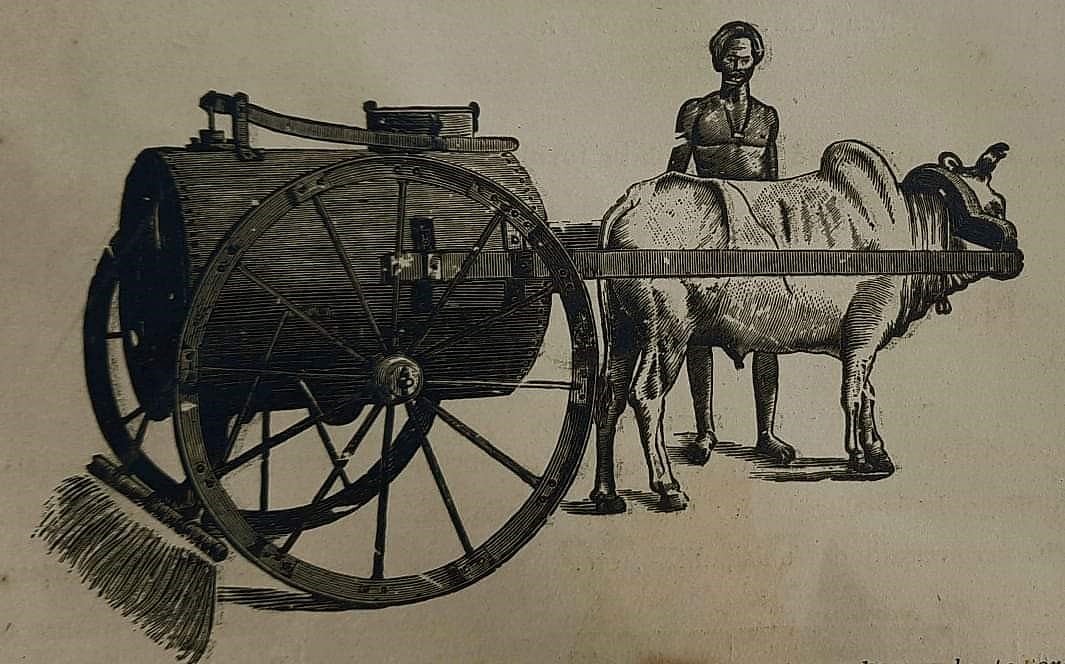Indore (Madhya Pradesh): Indore was a city which used to be concerned about its cleanliness for several eras. In the early-19th Century, the city used to be cleaned on bullock carts and Indore Municipality used to manage the city.
Historian Zafar Anasari says that, in 1862, Maharaja Tukoji Rao II started the initiative to form a municipality in Indore. He, along with his commander, Bakshi Khuman Singh and Bhausaheb Reshamwala went to Mumbai and other cities to learn about the functioning of the municipality. He said that he gave a tender for cleaning the roads to one of the company from Calcutta which ordered an iron watering bullock cart for cleaning the roads of the city.
The municipality used to take care of the bulls even after they got old. Also, when the new technologies were introduced for cleaning of roads in the ’70s and ’80s, the municipality took care of each of the bulls. In the 1960s, only around 5 miles of roads were cemented in Indore, whereas 52-mile-long concrete roads, 70 mile-metal roads and kutccha roads were 11 miles.
Gandhi Hall @ Rs 5 per day
At that time in the ’60s, Gandhi Hall was used to be given for private programmes and functions by the municipality at a cost of Rs 5 per day with a deposit of Rs 50 as caution money. The municipality used to manage providing tents to people for marriages which they used to cost around Rs 10, utensils for 12 paise and folding chairs at 20 paise per day. For non-vegetarian food making they used to give separate utensils at Rs 1 per set for one day.
Rates that time set by municipality
Gandhi Hall - Rs 5/day
Bunglow near Pipliyapala - Rs 2/day
Boat at Pipliyapala Bungalow - 50 paise/hour
Manure from municipality - Rs 3.50/vehicle
Ambulance/death van/jeep/cement mixer on rent - Re 1
Trawler/road roller - Rs 6
Water tanker (1000 galons) - Re 1





